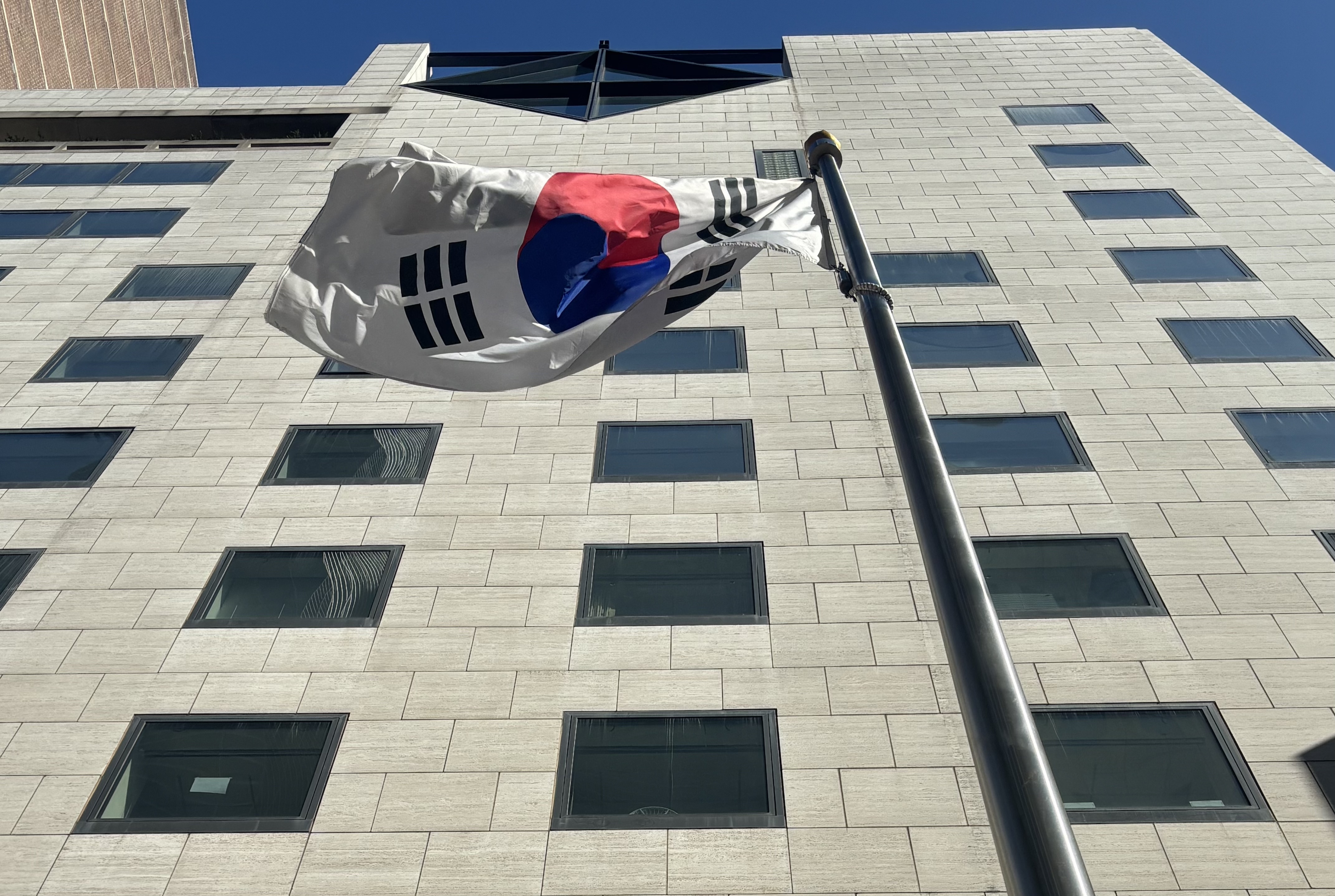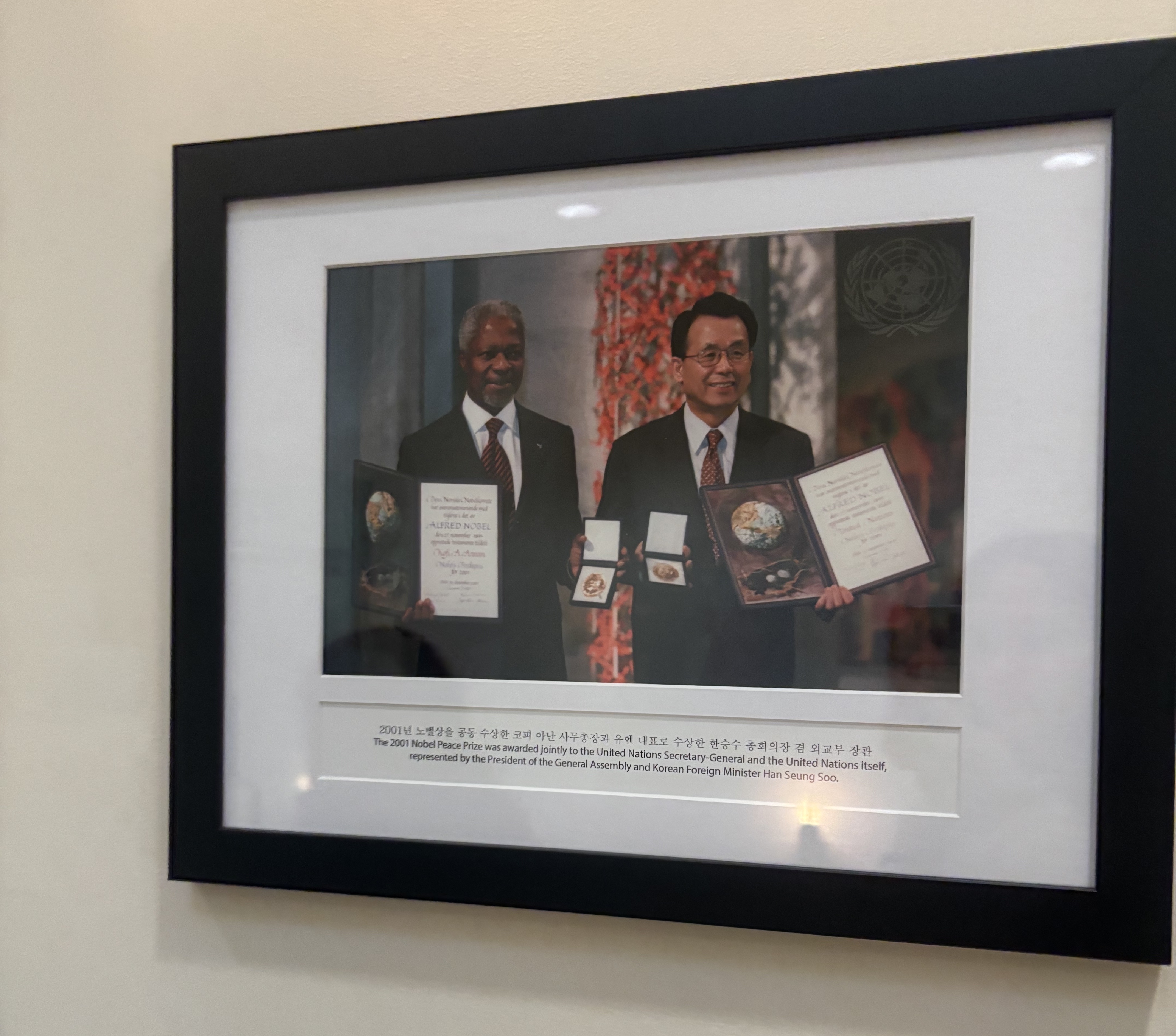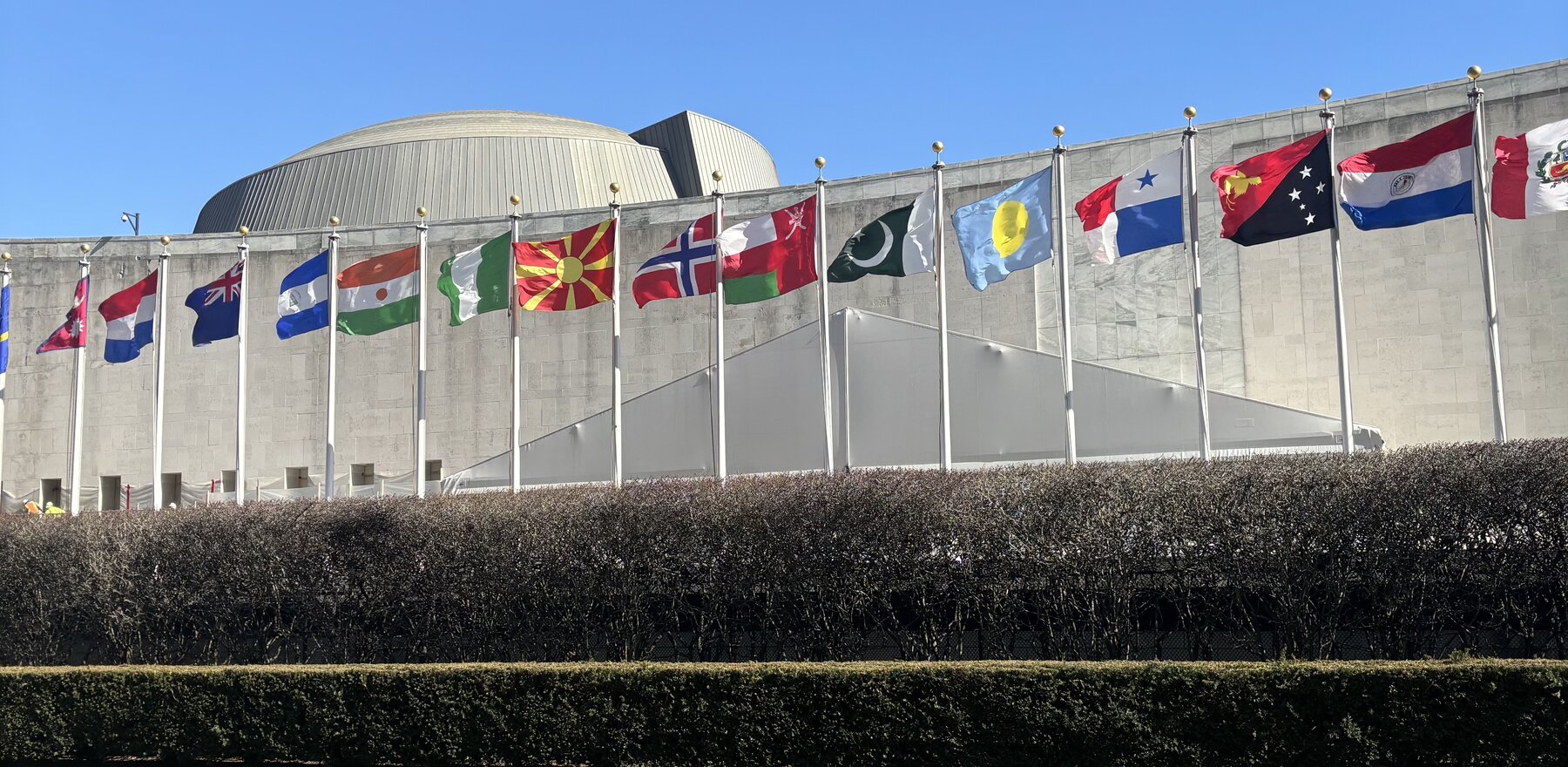A group of Lehigh University students were treated to two vastly different perspectives on the holding of and use of power during a March 1 visit to the United Nations.
The students began at the South Korean Mission to the UN for a meeting with South Korea's Representative to the UN Security Council. Following this meeting, the group walked a mere 30 steps east and got a completely different perspective during a meeting with a UN Non-Governmental Organizations (NGO) Relations Officer.
Those attending included members of the University's UNA-USA chapter, interns engaged in Lehigh's UN initiatives, and students drawn by the meeting's topics and distinguished facilitators.

At the South Korean Mission to the UN, the Lehigh contingent was greeted by Yuchan Oh, First Secretary and Legal expert. First Secretary Oh began by delving into the significance of the UN to South Korea and delineated the organization's overarching agendas.
Quoting former UN Secretary-General Dag Hammarskjöld, First Secretary Oh said: "The United Nations was not created in order to bring us to heaven, but in order to save us from hell.”
Oh emphasized the UN's role in averting catastrophe, underscoring the organization's limitations in enforcing national stances. He portrayed South Korea as a beacon of hope for developing nations and expounded on the concepts of peacekeeping versus peacebuilding, a pivotal distinction for the UN's mission.
The discussion delved into the UN's Women, Peace, and Security agenda, with Oh stressing South Korea's commitment to integrating women in peacebuilding endeavors. Subsequent to Oh's insightful discourse, the floor opened for an exchange of questions and answers, encompassing topics from global conflicts to UN structural reforms.
Expressing gratitude, the Lehigh contingent bid farewell with a vote of thanks in both English and Korean before transitioning to the neighboring UN NGO office. Felipe Queipo Rego, Communications Officer at the United Nations, met with the group for a subsequent meeting.
Queipo works for the Civil Society Unit of the Department of Global Communications of the UN and he currently serves as a Communications Officer, leading outreach and communications efforts with Civil Society Organizations (CSOs). He liaises with faith-based organizations on issues related to sustainable development and with the department at the UN Interagency Task Force.

Queipo promptly facilitated an open dialogue, inviting Lehigh students to pose their inquiries. Among them, a Lehigh student inquired, "Do you feel the United Nations promotes and respects the diversity of religions around the world, and how does it encourage cross-religious solutions to global challenges?"
Queipo responded comprehensively, delineating the UN's evolving stance on religion. He described how the organization once expected nations to shed their religious affiliations upon entering the UN, but now champions religious diversity, particularly in fostering effective conflict resolution. Recognizing religion as a potent force shaping human behavior and ideologies, Queipoo underscored its pivotal role in effecting lasting change, thus justifying the UN's shift in perspective.
Additionally, he shared an optimistic perspective on the value of artificial intelligence in response to another question. He expressed faith in AI's potential to amend societal issues and bridge human divides, provided it is wielded for benevolent purposes.
Regarding community interventions, Queipo emphasized the necessity of tailoring language and approaches to specific communities. Acknowledging the prevalence of biases and entrenched beliefs, he stressed the importance of cultural sensitivity and active listening in engendering trust.
He advocated for meaningful engagement, citing shared meals and collaboration with trusted community figures, including religious leaders, as instrumental in effecting enduring change. Emphasizing the imperative of empowering communities to address their own needs, he underscored the importance of inclusive decision-making processes, wherein local voices guide interventions towards sustainable solutions.
Reflecting on the day's insights, Lehigh participants shared their perspectives.
“Our trip was nothing less than an insightful one,” Shreya Chawla said. “After our meeting at the Permanent Mission of the Republic of Korea to the United Nations, I am reminded that diplomacy is not just about negotiations but understanding the complex geopolitical landscape. As a participant, I couldn't help but appreciate the heaven/hell quote, encapsulating the gravity of international relations. Additionally, my interactions with Mr. Queipo further emphasized the crucial role of communication and engagement with civil society for sustainable development, echoing the need for collaborative efforts in navigating the complexities of our world.”
Diya Narayan, International Public Relations Association Youth Representative to the UN and first-year student, shared: “I thoroughly enjoyed my trip to the United Nations. I thought it was a very insightful one, where I met with very intellectual people, and had a great time really discovering certain ideas I had never really thought about. It led to great discussions that I will take on into the future. Mr. Queipo really covered misinformation, and as a person that wants to go into the marketing field, I found this very interesting.”
Lehigh’s trip provided invaluable insights into global diplomacy, communication strategies, and community engagement. Through dialogue, students gained a deeper understanding of the UN's evolving role in promoting religious diversity, addressing emerging technological challenges, fostering sustainable development and the current political and social challenges faced by South Korea and other nations. As they carry forward the lessons learned from their UN experiences, these students are gaining the tools to become informed advocates for positive change in their communities and globally.
